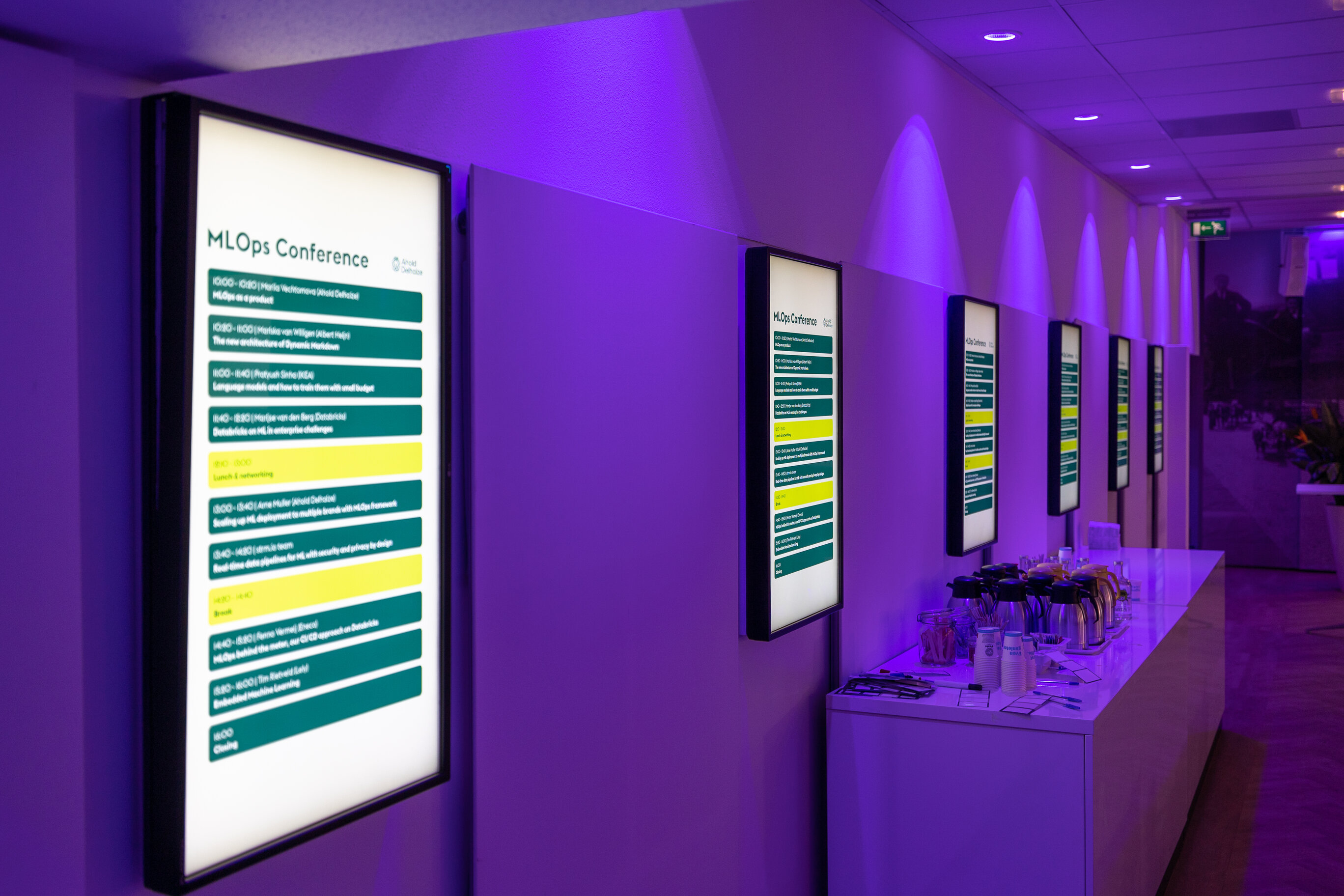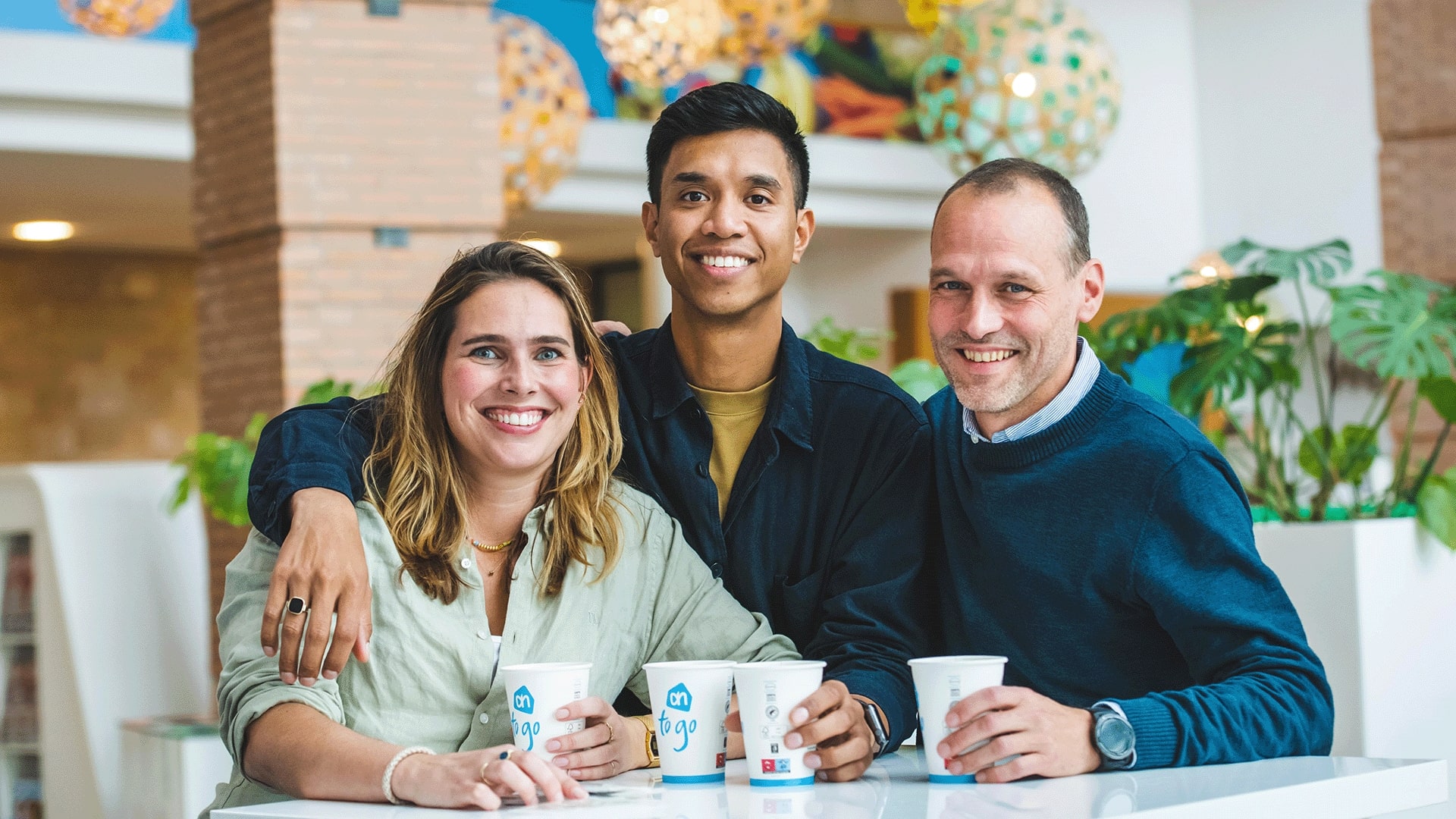April 3, 2023 – Machine learning operations, or what is commonly referred to as MLOps, is a collaborative function often comprising of data scientists, devops engineers, and IT. It is a core function of machine learning engineering and is a key and useful approach for the creation and quality of AI (Artificial Intelligence) solutions. That’s why it is critical for a multinational food retail technology company like Ahold Delhaize.
Many companies find it challenging to bring machine learning models to production and would benefit from exchanging knowledge with each other. That's why on March 23-24, Ahold Delhaize hosted its first MLOps conference, to share knowledge across different industries and to help tech professionals find new solutions to common problems.

Held at our Global Support Office in Zaandam, the Netherlands, the conference proved to be a great event that saw more than 100 like-minded people in the same room and where inspiring tech leaders from great leading Dutch companies discussed the challenges and solutions they're working on. The conference and speakers covered the following three key topics:
- How infrastructure for machine learning projects needs to be organized and what tools can be used
- How to organize teams to speed up time to the market for machine learning products
- How to go about challenging machine learning projects
Key highlights from speakers
During the event, speakers from (but not limited to) ING, Lely, Schiphol, codebeez.nl, Albert Heijn, bol.com and Ahold Delhaize presented the following insights from their MLOps projects.
Joshua Lee, Tech Lead at ING
Joshua discussed why adopting MLOps can be challenging in an enterprise. His key takeaway: there is no one “right” MLOps tool for the job. In a large organization, all tools needed for MLOps already exist. It is important not to focus on fancy tooling, but on users and data scientists.
Anastasija Efremovska, Platform Engineer & Quiran Storey, Software Engineer at bol.com
Anastasija shared their story about the journey of self-service developer platforms. They rethought the existing proposition that focused on one group of users – java microservice developers, and extended it to other groups, such as the data science community and developers building custom infrastructure. It made a huge difference in making all groups of users truly autonomous.
Guus Verstegen, Data Scientist at Albert Heijn
Guus shared how he is working on a daily demand forecast solution for more than 1,000 stores and more than 20,000 products with a goal to reduce waste and provide better on-shelf availability. Key takeaway: the right choice of tooling, an autonomous way of working, shared knowledge and responsibility in the team are all key for developing and supporting such a crucial data science product for Albert Heijn.
Mariia Vechtomova, MLOps Transformation Manager European Business Services at Ahold Delhaize
Mariia discussed building a MLOps framework that is designed to help data science teams significantly reduce time to market for machine learning products. Main takeaway: it is important to be pragmatic when it comes to building MLOps framework, start small and show the value as soon as possible.
Tim Rietveld, Machine Learning Engineer at Lely
Tim focussed on bringing Machine Learning models to edge devices. He discussed how Machine Learning compliers can help to solve several challenges like different toolstack that Machine Learning and embedded engineers use and creating more autonomy across different teams. This topic is becoming increasingly as more organizations need to have Machine Learning models on edge devices.
Mariska van Willigen and Paolo Radaelli, Machine Learning Engineers at Albert Heijn
Mariska talked about new architecture of dynamic markdowns, an important machine learning product at Albert Heijn that contributes to a major goal: waste reduction. Mariska and Paolo went through the limitations of the current architecture and how those get resolved with the new architecture. Changing architecture of a product running in production can be tough, that it is why it’s important to have clear communication within the team and with the stakeholders – keep it small and make it work fast.
Justin van Dongen, Data Engineer at Schiphol
Justin discussed reusable infrastructure for data science products. As one of Schiphol’s goals is to be autonomous, data will have a big role in achieving this. With this comes a continuously growing field of AI where the need for control grows. Justin explained how he helped to improve the maintainability of their environment, whilst keeping flexibility for the Data Scientists using MLOps principles.
Arne Muller, Machine Learning Engineer European Business Services at Ahold Delhaize
Arne shared insight into improved deployment of a cross-selling model that creates suggestions of the products for customers at the checkout page of multiple Ahold Delhaize brands: Mega Image, Maxi, Alfa Beta, Delhaize using an MLOps framework. The current MLOps framework allows deployment to another brand within a month compared to 9 months previously.
Luuk van der Velden, Python AI Engineer at codebeez.nl
Luuk discussed his assignment at NS and how they set up lambda architecture for real time train crowdedness predictions and used stream processing for updating timetables and anonymizing customer data. Key takeaway: it is important to choose your architecture wisely taking into consideration costs and development complexity.
